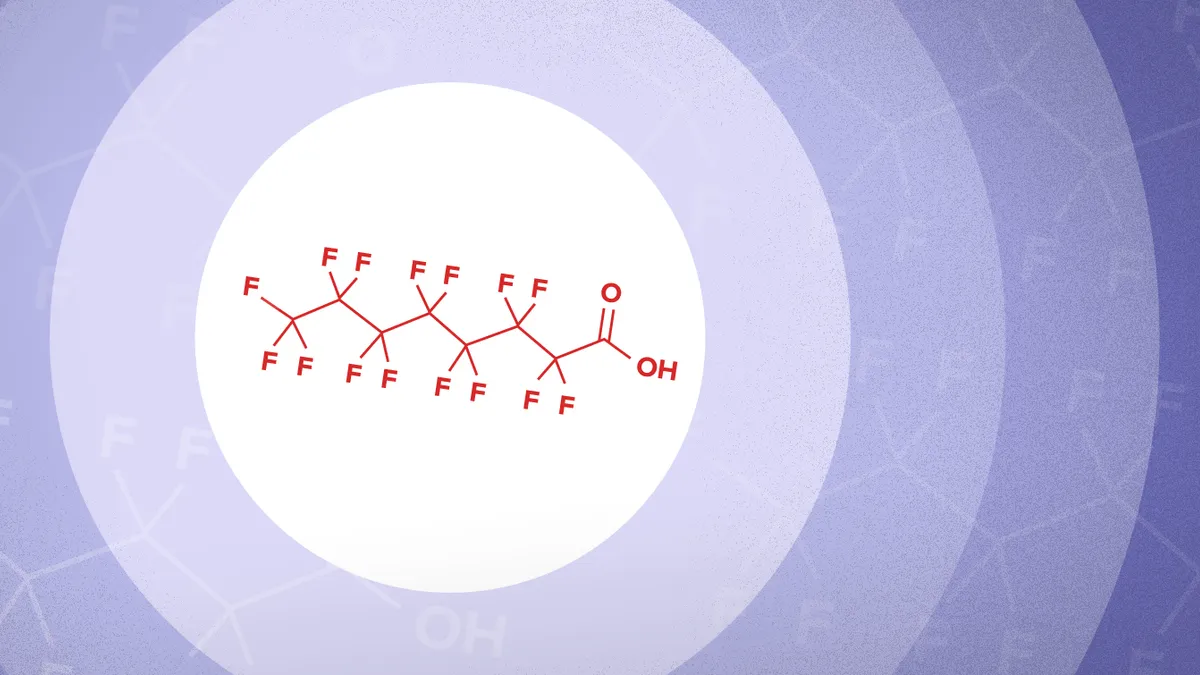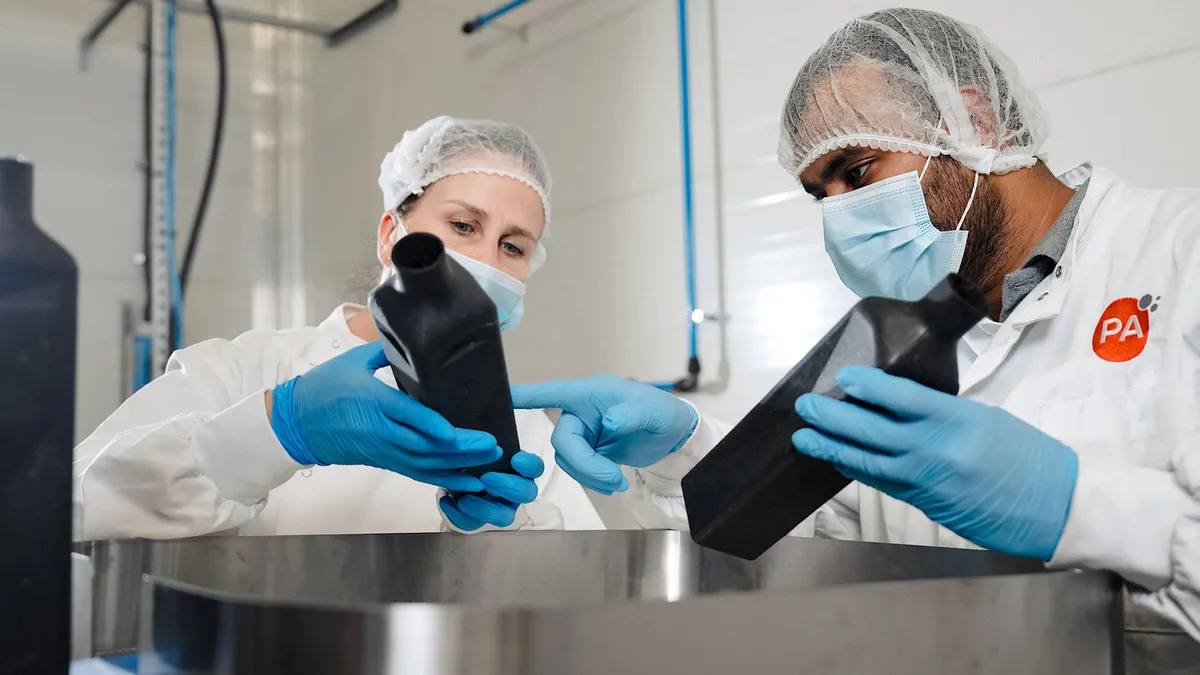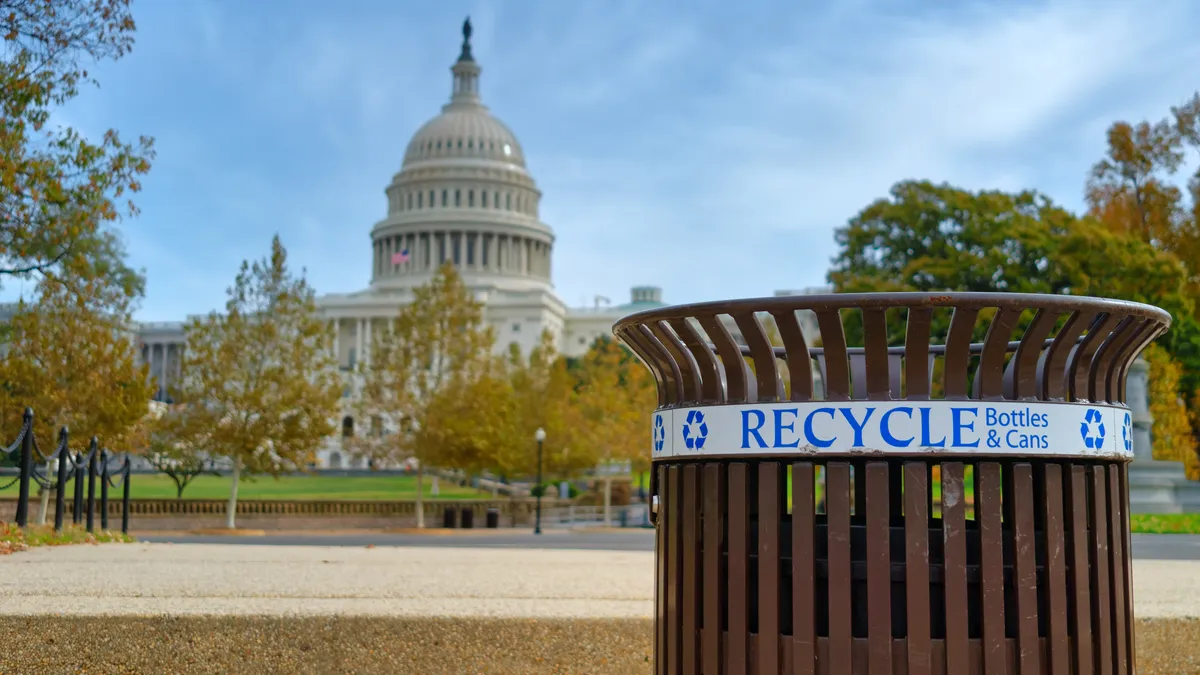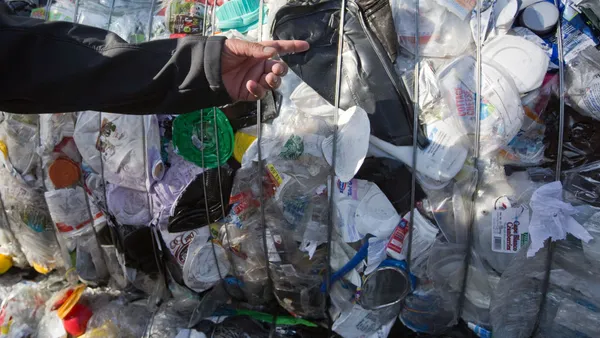Dive Brief:
- The Northeast Waste Management Officials’ Association (NEWMOA) has written draft model legislation aimed at reducing and eliminating the use of PFAS in products.
- The draft legislation offers a “menu of options” for legislators to consider, including a ban on products and packaging with intentionally added PFAS. Manufacturers could apply for an exemption if they can prove the product has an “unavoidable use,” but they would be required to establish an extended producer responsibility organization to take back the items.
- The draft bill contains other recommended provisions meant to label PFAS-containing items, educate the public on PFAS issues and set requirements so downstream operators know manufacturers are complying with regulations. The group is seeking public comment on the draft through June 29.
Dive Insight:
The draft legislation is a sign that waste-related groups are becoming increasingly involved in the legislative and regulatory fight over how to manage per- and polyfluoroalkyl substances. Some industry stakeholders say an upstream prevention approach is most effective because it places responsibility on the manufacturers and sellers of PFAS-containing items to remove the chemicals from their wares.
Facility operators are already managing PFAS in leachate and in other operations, and they anticipate additional costs and possible liability issues from handling PFAS-containing materials that continue to enter the waste stream. Some federal legislators have already introduced bills meant to help protect “passive receivers,” such as composters and operators of solid waste facilities, from liability under the Comprehensive Environmental Response, Compensation and Liability Act (CERCLA), also known as Superfund.
NEWMOA’s model legislation comes as states within the association’s region, such as Massachusetts, are mulling PFAS management bills meant to address contamination and reduce future sources of PFAS from entering the environment. Maine already has a law restricting or phasing out PFAS in numerous items.
NEWMOA’s draft may not influence already-introduced bills, but “our goal here is to develop thoughtful model legislation that jurisdictions can use, whatever their legislative process,” said Martin Suuberg, the organization’s executive director, during a May 10 webinar.
The legislation includes several provisions meant to help phase out PFAS in consumer products “to the extent feasible,” particularly through source reduction. The bill also tackles considerations such as how to disclose PFAS in products through labeling or other notices, how to provide downstream operators with “regulatory certainty” that manufacturers are complying with bans or other restrictions and how to ensure any PFAS substitutes don’t cause other detrimental environmental or health impacts.
Suuberg added that there is still “a fair amount of work to do” on the draft and that NEWMOA may update the approach as public comments come in.
The bill was written with input from state environmental agency officials in Connecticut, Massachusetts, Maine, New Hampshire, New Jersey, New York, Rhode Island and Vermont, but the committee members and NEWMOA itself said they don’t take an official position on the bill.
Matt Chapman, director of the waste management and prevention division of Vermont’s Department of Environmental Conservation, said during the webinar that the draft is designed to allow policymakers to choose sections that make sense to their local priorities instead of implementing every provision at the same time.
However, NEWMOA underscored in a fact sheet that “it is important that jurisdictions implement their efforts as consistently as possible for each option implemented” to help align states in the region under similar PFAS approaches.
Though the model legislation was written with the Northeast in mind, NEWMOA said the draft can serve as a resource for other regions.
Several other state legislatures are debating PFAS-related bills. A provision in Minnesota’s omnibus budget bill, if passed, would ban the non-essential use of PFAS in items like cookware, cosmetics and cleaning products. Alaska’s legislature is debating a bill meant to ban some uses of PFAS-containing firefighting foam. Indiana’s governor recently signed a law prohibiting fire departments from purchasing certain gear unless it is labeled to say whether or not it contains PFAS.
















